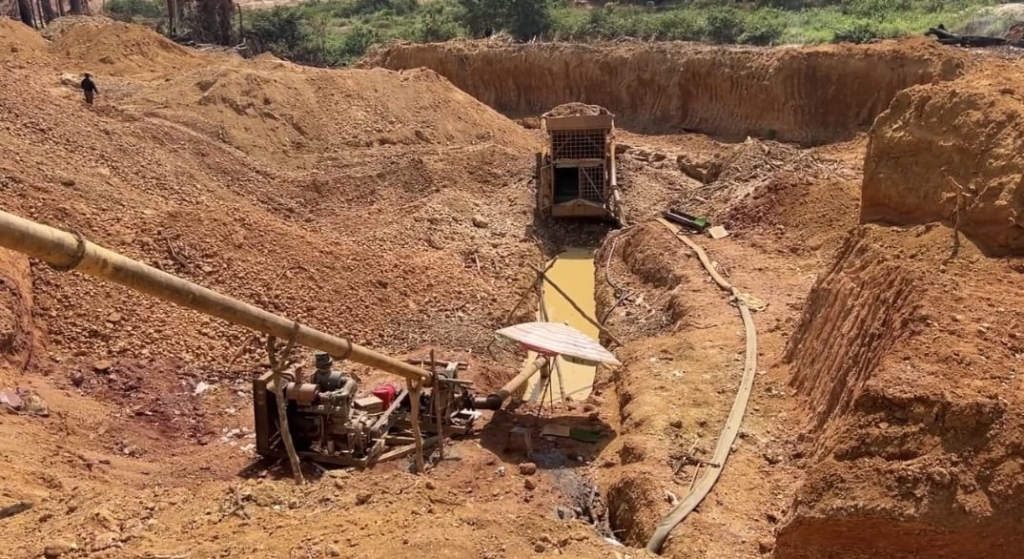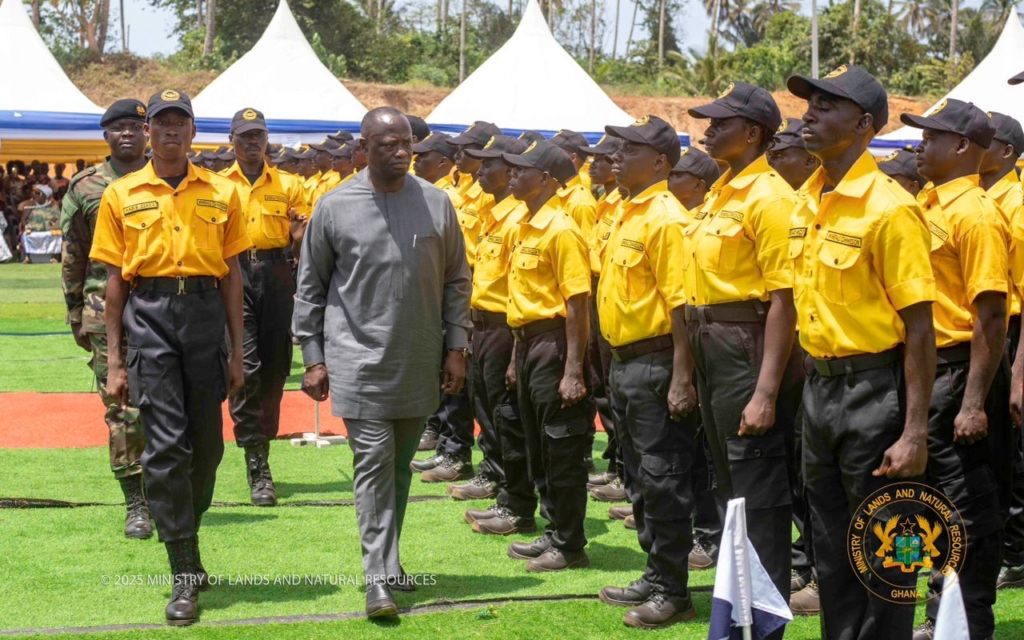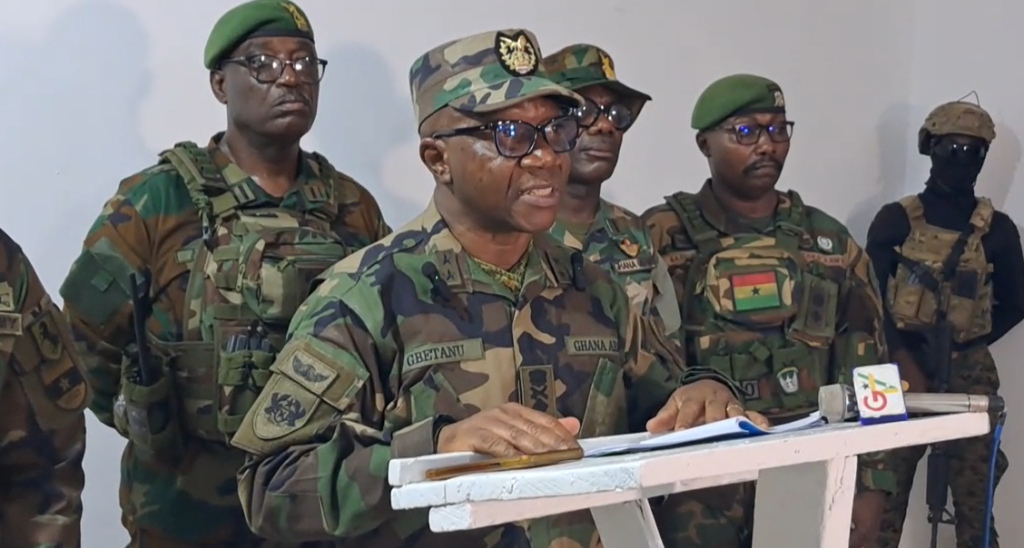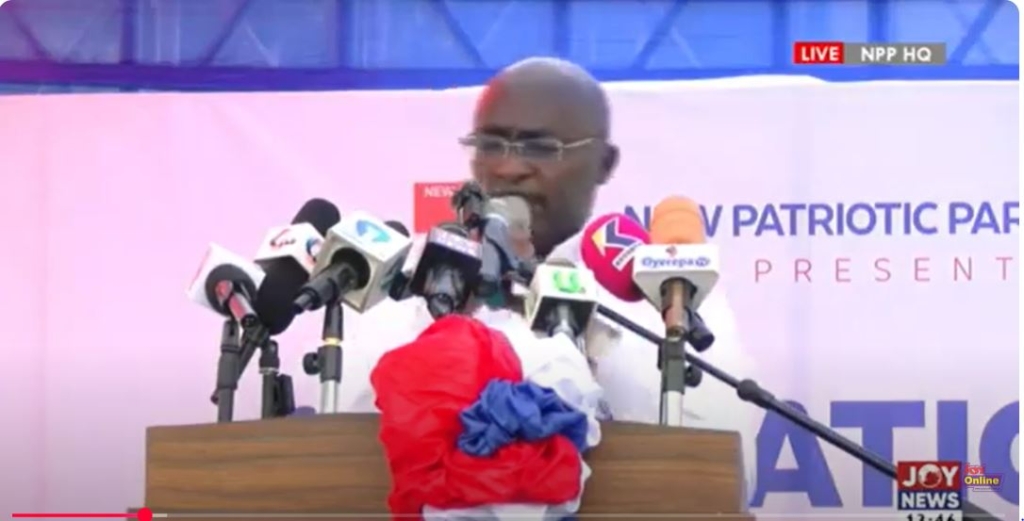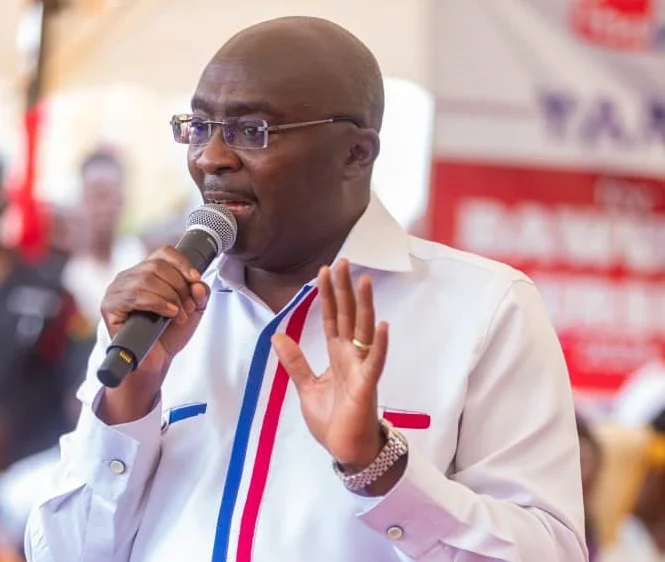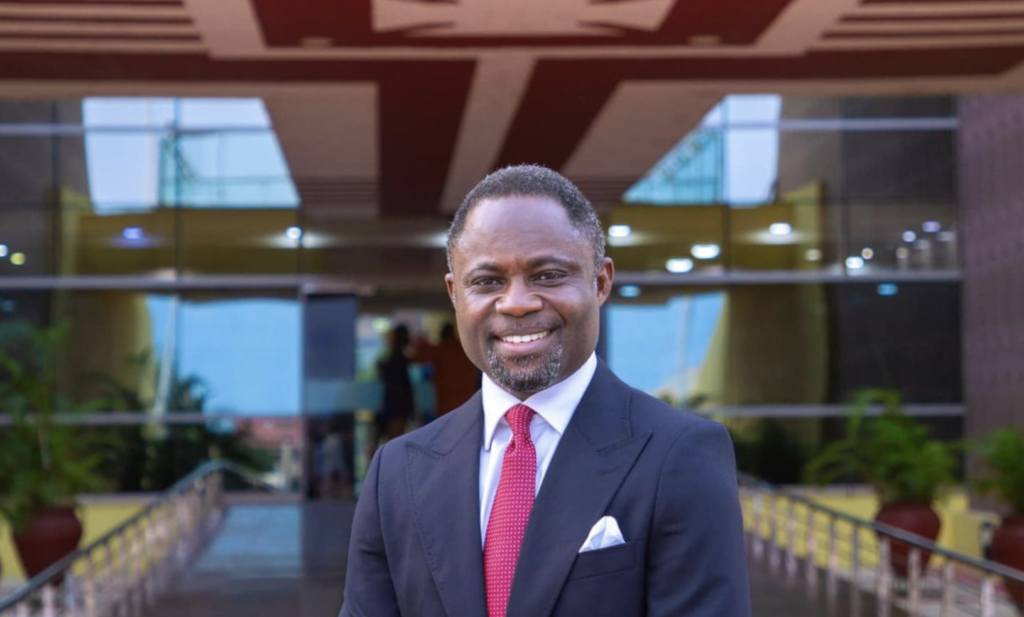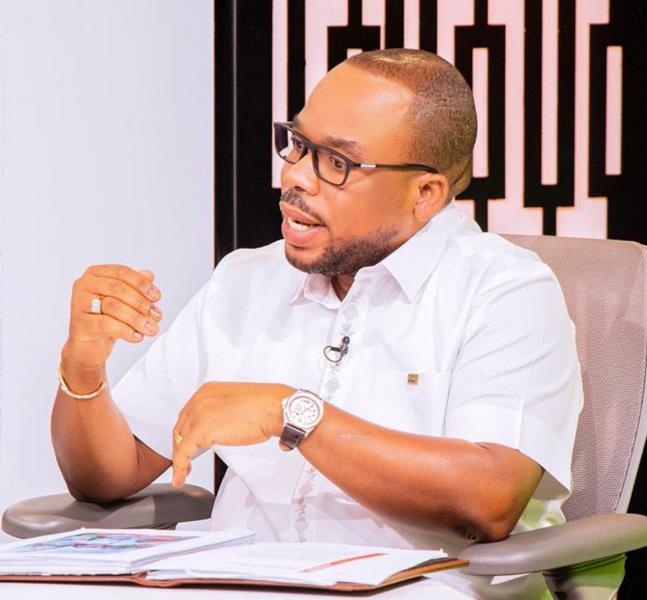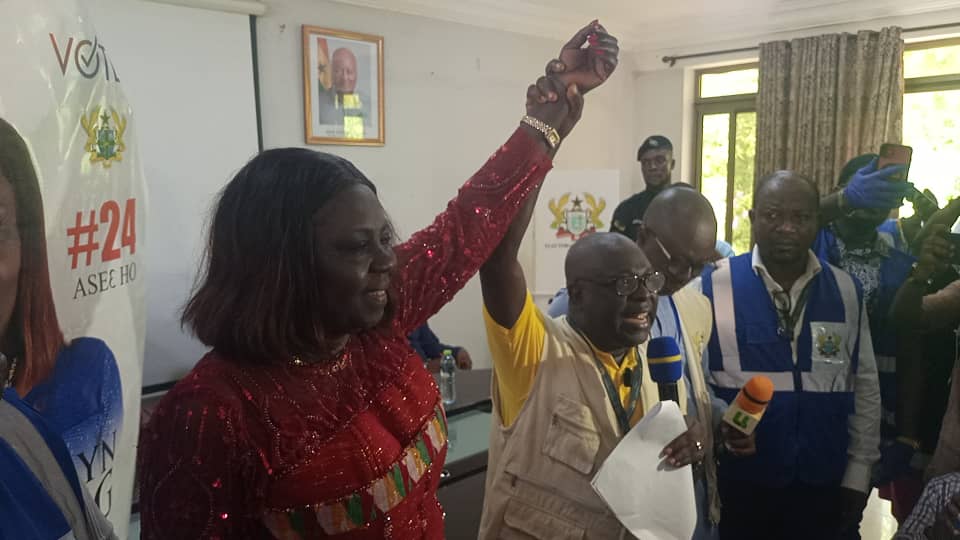The Centre for International Maritime Affairs, Ghana (CIMAG), a premier think tank dedicated to advancing sustainable maritime governance, security, and economic development, proudly celebrates the commissioning of 453 Blue Water Guards by the Minister for Lands and Natural Resources, Hon. Emmanuel Armah-Kofi Buah, at the Naval Operating Base in Ezinlibo. This historic initiative, which aligns seamlessly with CIMAG’s core mission, represents a transformative step toward protecting Ghana’s critical river systems, strengthening maritime security, and safeguarding the nation’s blue economy.
The Blue Water Guards, now deployed to collaborate with the Ghana Navy, will patrol vital waterways such as the Pra, Ankobra, and Birim to combat illegal mining, or “galamsey,” a pervasive threat that has polluted rivers, degraded ecosystems, and jeopardised the livelihoods of millions. By addressing this crisis, the initiative not only protects Ghana’s environment but also reinforces the maritime industry’s pivotal role in national development, a priority championed by CIMAG through its research, advocacy, and stakeholder engagement.
A Strategic Leap for Maritime and Environmental Security
The commissioning of the Blue Water Guards underscores the profound importance of Ghana’s inland waterways as integral components of its maritime domain. Rivers are the lifeblood of communities, supporting agriculture, fishing, and water supply, while also serving as conduits for trade and transportation. Illegal mining has inflicted severe damage, with heavy metals like mercury contaminating water sources, causing health crises, and eroding biodiversity. CIMAG’s research highlights that the loss of clean water bodies threatens food security, public health, and economic stability, making the guards’ role in enforcement and restoration critical.
This initiative aligns with CIMAG’s strategic objectives to promote integrated maritime governance that encompasses both coastal and inland waters. By tackling galamsey, the Blue Water Guards contribute to Ghana’s compliance with international frameworks such as the United Nations Convention on the Law of the Sea (UNCLOS) and the African Union’s 2050 Africa’s Integrated Maritime Strategy (AIMS). These frameworks emphasise sustainable resource management and security, positioning Ghana as a leader in regional maritime stewardship.
Empowering Communities Through Capacity-Building
The rigorous training of the 453 guards at the Naval Operating Base in Ezinlibo, equipping them with skills in riverine operations, environmental monitoring, surveillance, and community engagement, reflects the kind of capacity-building CIMAG has long advocated. This holistic approach ensures the guards are not only enforcers but also partners in fostering dialogue with local communities. By involving stakeholders, the initiative addresses the socio-economic drivers of illegal mining, such as poverty and unemployment, which CIMAG’s studies identify as root causes.
CIMAG’s Executive Director, Mr. Albert Derrick Fiatui, lauded the program’s forward-thinking design. “The Blue Water Guards embody Ghana’s commitment to a secure and sustainable maritime future. At CIMAG, we see this as a model for balancing enforcement with community empowerment, ensuring our rivers are protected while supporting the livelihoods of those who depend on them. This initiative strengthens Ghana’s blue economy and sets a precedent for maritime innovation,” he said.
The protection of Ghana’s rivers has far-reaching economic implications. Clean waterways are essential for sectors like agriculture, which employs over 40% of Ghanaians, and fisheries, a key contributor to food security and exports. By curbing galamsey, the Blue Water Guards help preserve these industries, fostering economic resilience and attracting investment in sustainable tourism and agribusiness. Moreover, Ghana’s proactive stance enhances its reputation in global maritime and environmental forums, potentially unlocking partnerships and funding for green initiatives. The initiative also addresses a critical gap in maritime security. Illegal mining often intersects with other illicit activities, such as smuggling and unregulated trade, which destabilise the region. The guards’ patrols will enhance surveillance and deter such threats, reinforcing Ghana’s maritime domain awareness, a key focus of CIMAG’s advocacy for a secure Gulf of Guinea.
Recommendations for Sustained Impact
To maximise the program’s success, CIMAG urges the government to:
- CIMAG urges the government to equip the guards adequately by providing modern tools such as drones, water quality testing kits, and patrol boats to enhance their efficiency.
- It further recommends the expansion of community programs by scaling up alternative livelihood initiatives like vocational training and eco-tourism to reduce reliance on illegal mining.
- CIMAG also advises leveraging technology by integrating satellite monitoring and data analytics to track illegal activities in real-time, a strategy supported by its research.
- Lastly, it calls for the strengthening of legal frameworks by fast-tracking prosecutions of offenders to deter violations and ensure the guards’ efforts are supported by robust judicial processes.
CIMAG also recommends regional collaboration with neighbouring countries to address cross-border mining activities, aligning with the Economic Community of West African States (ECOWAS) protocols on environmental protection.
CIMAG’s Commitment to a Sustainable Future
As the Blue Water Guards embark on their mission, CIMAG pledges to support the initiative through policy analysis, stakeholder workshops, and public awareness campaigns. The think tank will monitor the program’s progress, offering evidence-based recommendations to refine its implementation and amplify its impact. CIMAG’s upcoming policy brief, “Securing Ghana’s Rivers: A Blueprint for Maritime Sustainability,” will feature the Blue Water Guards as a case study in innovative governance.
CIMAG calls on all Ghanaians, citizens, businesses, and civil society to rally behind the Blue Water Guards. Protecting our rivers is a shared responsibility that transcends politics and borders. By supporting this initiative, Ghana can reclaim its waterways, boost its economy, and inspire the region.
Today’s commissioning is more than an event; it is a clarion call for a greener, more secure Ghana. CIMAG stands proudly with the government, the Ghana Navy, and the Blue Water Guards in this noble endeavour, confident that together, we can build a maritime legacy that endures for generations.
DISCLAIMER: The Views, Comments, Opinions, Contributions and Statements made by Readers and Contributors on this platform do not necessarily represent the views or policy of Multimedia Group Limited.

